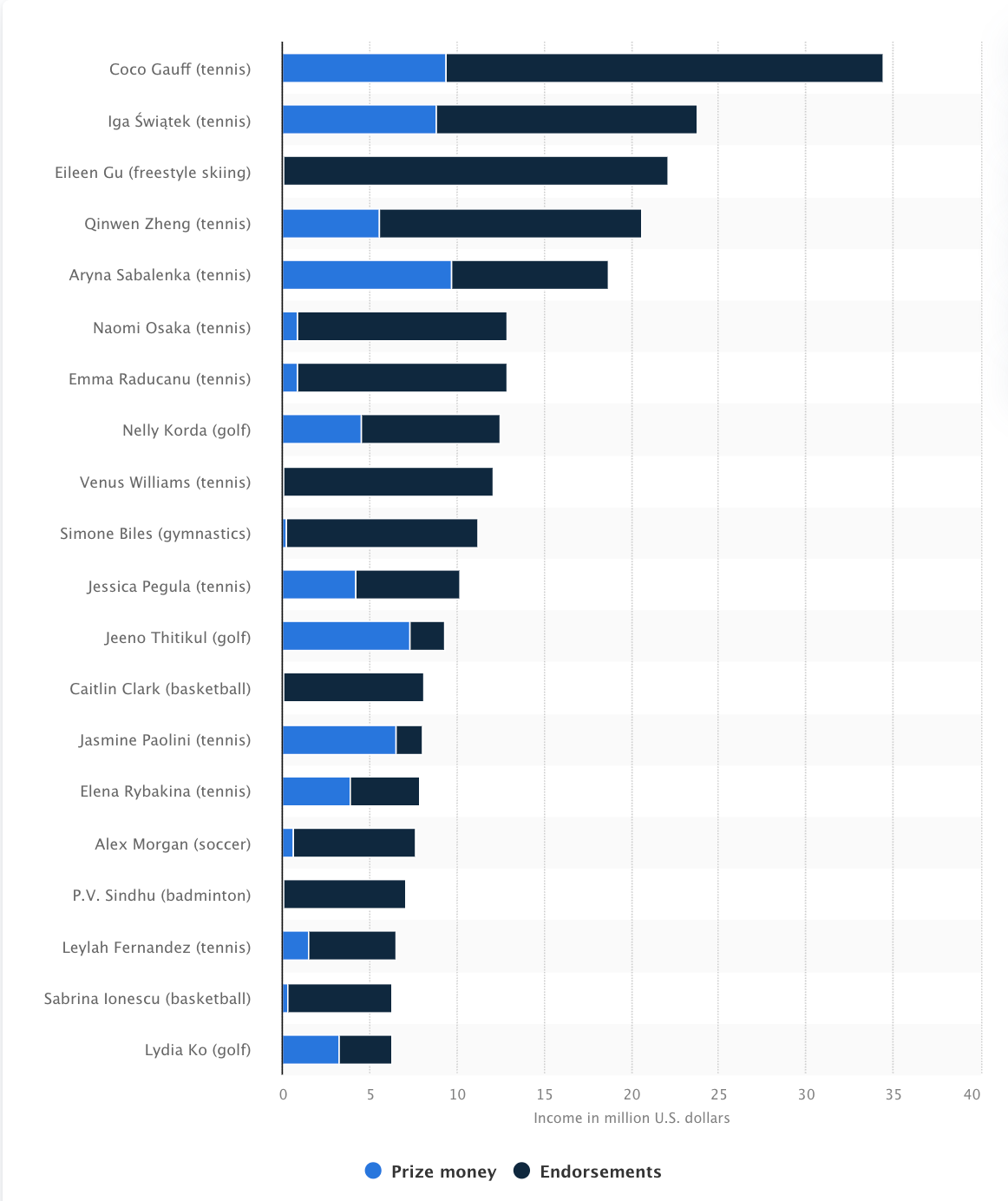Growing up without women’s sport
In the 1990s, if it wasn't on TV, it wasn't important
Sometimes I have difficulty talking to people who have never seen Justine Henin hit backhands. One does not need to understand the biomechanics — how she contorted her body sideways into a closed stance, used her left hand to bring the racket back, shifted her weight from back foot to front and then… whoosh. It was self evidently absurd how anyone — let alone at 5 ft 5 in — could hit the ball so hard, with such grace, and do it all with one hand.
I mention this partly because I will seize on any excuse to share this video. But mostly to provide some breathing space before I make a potentially impolitic confession1: I have no interest in the UEFA Women’s Euro 2025, currently taking place in Switzerland.
Let me assure you what this newsletter is not about: comparing women’s sport with men’s. I would sooner wait on hold to HMRC for three-quarters of an hour before being automatically disconnected, on the basis that it would be less tedious. Shelly-Ann Fraser-Pryce, one of the greatest (and easily best-named) sprinters of all time, would lose a 100m race to plenty of men — but so what? A world-class featherweight boxer taking on a journeyman heavyweight would make for a short fight and bad television.
By the way, if you haven’t seen Fraser-Pryce simply demolish other parents during a race at her son’s school’s sports day, enjoy.
Nor is my disinterest in women’s football a comment on its quality. I know this because I do not watch men’s football either. My consumption is entirely in podcast and written form. I’m a narrative merchant, in the parlance. I rarely even watch those three-minute highlights provided by the Premier League, like one of those economists John Kenneth Galbraith mocked, who knows 365 ways to make love but does not know any women.
Equally, this means there is nothing stopping me from following the Euros, or next season’s Women’s Super League. Instead, the barrier to entry is like that of starting a new book. The characters are alien, their names just a collection of letters, and I miss the familiar rhythm of knowing what matters and why. And yet — watching others read it with joy naturally makes me wonder what I’m missing.
Part of me inevitably wants to blame others, not least the English FA, who deliberately hampered the development of the women’s game, going as far as effectively banning it in 1921, essentially for being too popular. I’m also fairly certain that this is largely a consequence of my cultural inheritance.
As a child of the 1990s, I was bombarded by a wall of silence which told me in no uncertain terms that women’s sport was not important — because it was not broadcast on television or written about in newspapers. There were exceptions, of course, such as Wimbledon and the Olympics, but these went unexamined. Just one of those things, like indoor plumbing or conspiratorial antisemitism.
None of this is reflected in my nephew, a quarter of a century my junior, who simply loves Arsenal, men’s or women’s side. And he is all the richer for it, not least because the latter just won the Champions League. At the same time, there are plenty of my contemporaries who are fanatical about the women’s team. You don’t sell out the 60,000-seater Emirates Stadium if your product is merely a niche fascination.
Tennis, oddly, might be the only sport losing ground. It was once a lonely outpost where women could thrive, commercially and culturally. Indeed, for decades, the world’s highest-paid female athletes were tennis players2. They still are today. But the rise of other women’s sports gives young girls more options if they want to pursue a professional career.
As a result, sports fans — both men and women — will have far more to watch, read and admire than I ever did. Not going to lie — I’m a little jealous.
Hot on the heels of admitting I’ve never seen Back to the Future
Women did not have full equality however. Indeed, Wimbledon only granted equal prize money to its singles champions in 2007.




Interesting.
I have recently complained to the BBC about how they report women’s sport:
There is sexism in your sports reporting across radio and tv news. Some reporters do get it right, but generally men's sport is referred to as sport while women's sport is referred to as Women’s sport.
Let me give you some examples:
In cricket, England beat X, versus in Women’s cricket, England beat X
In football, Liverpool beat X, versus in Women's football, Liverpool beat X
World No 1, Jannick Sinner, beat X. Women's World No 1, Aryna Sabalenka, beat X
Please refer to Men's sport and Women’s sport . Otherwise you are perpetuating sexism, overtly and subliminally.
It's just as easy to say :
In Men's cricket, England beat X
In Men's football Liverpool beat X
Men's World No 1, Jannick Sinner, beat X
Thank you